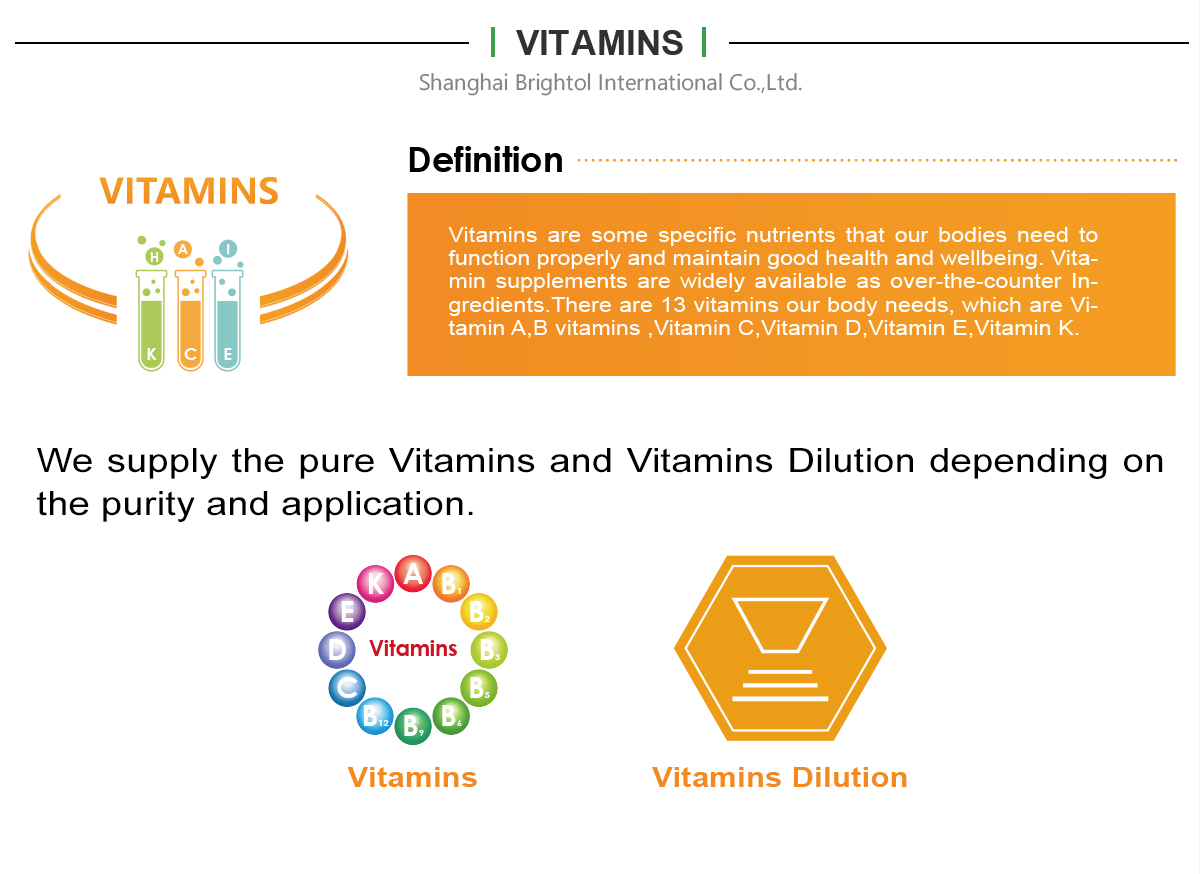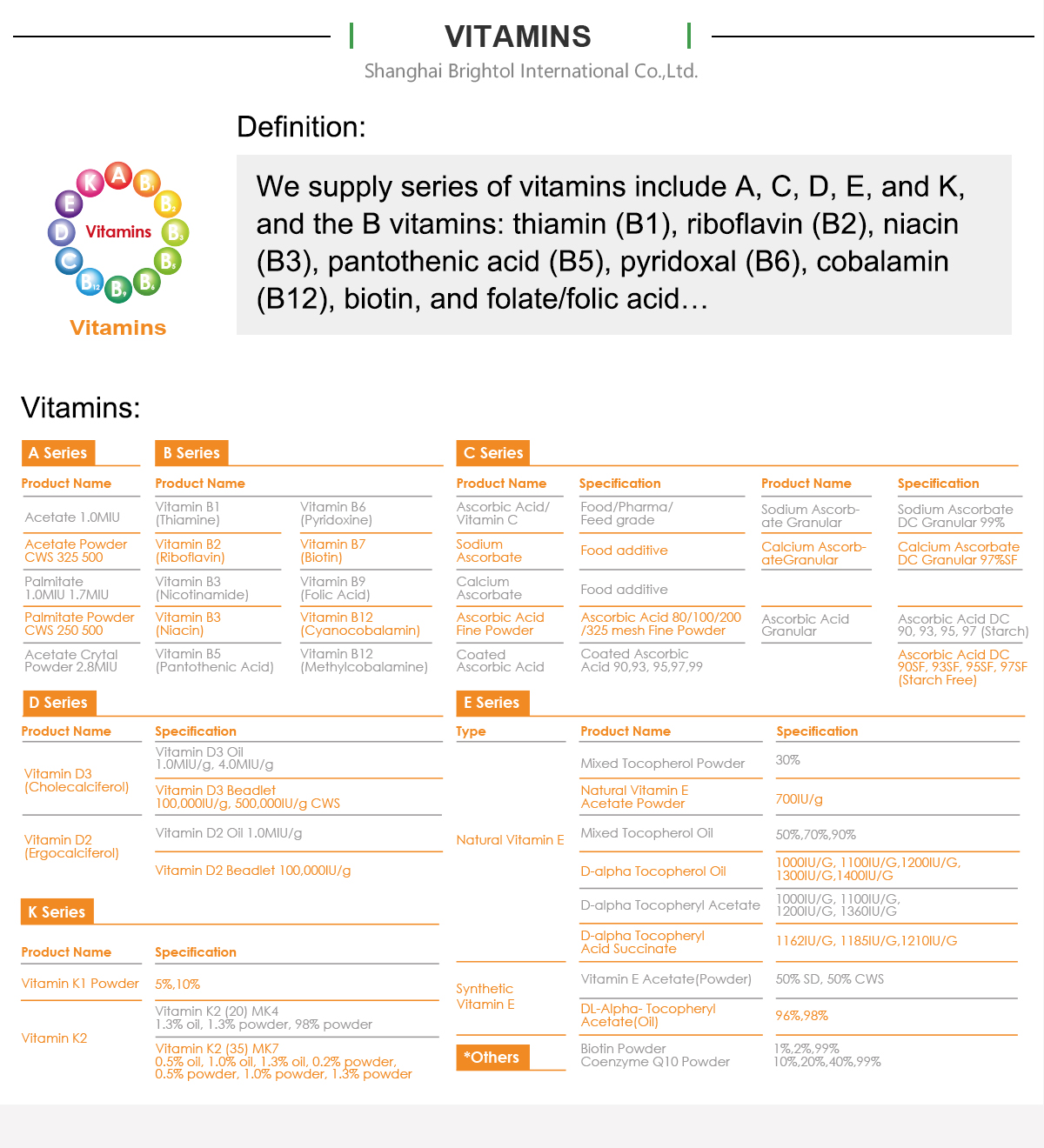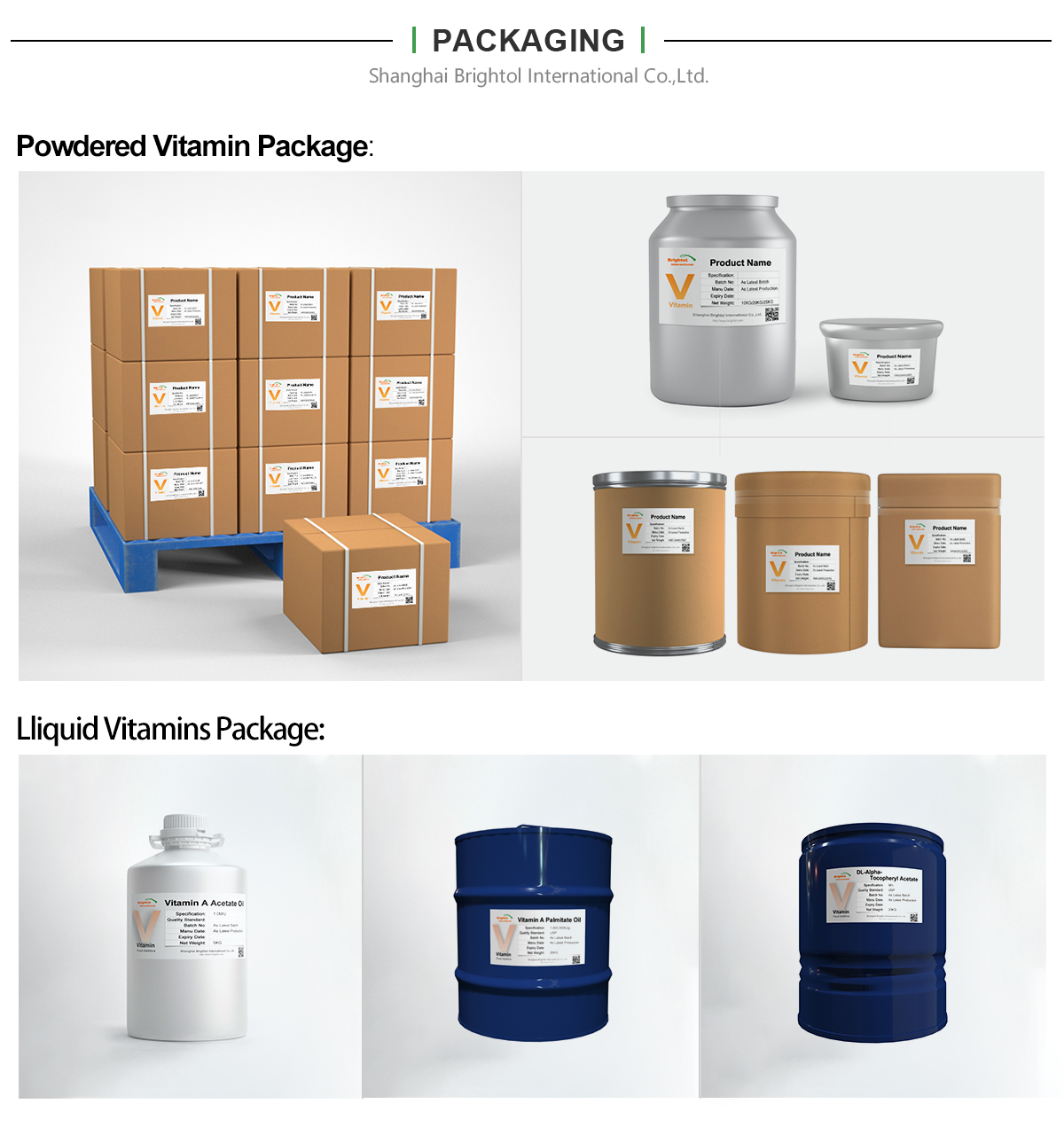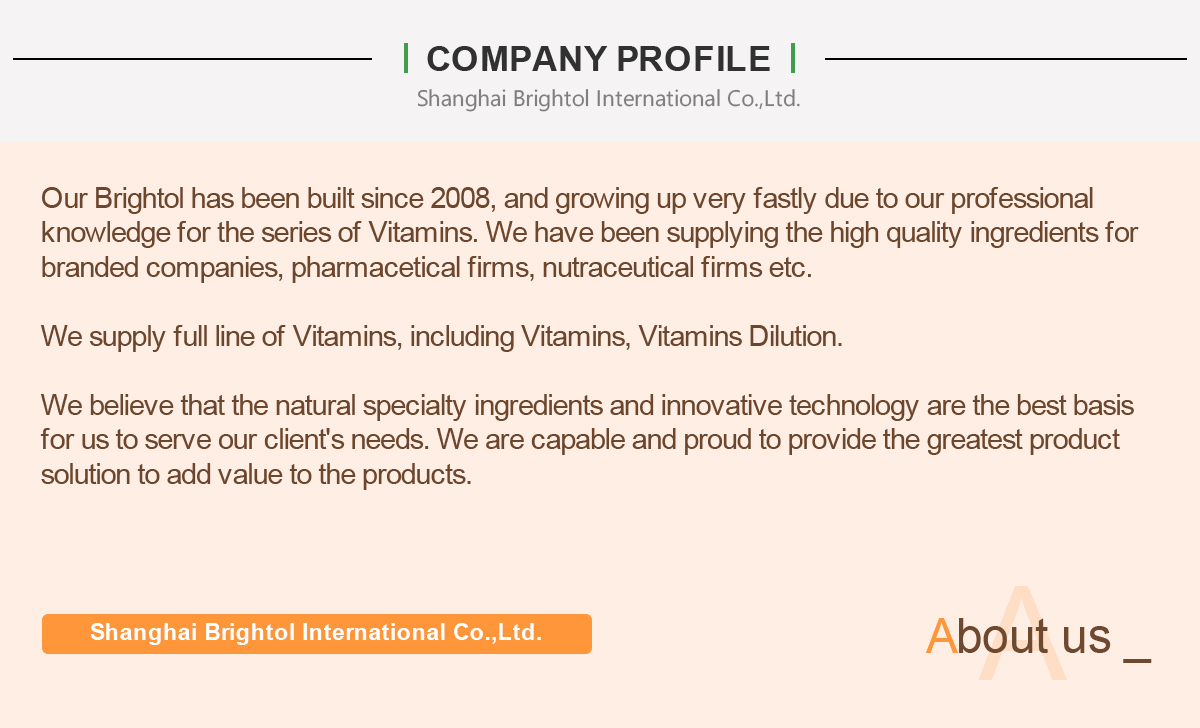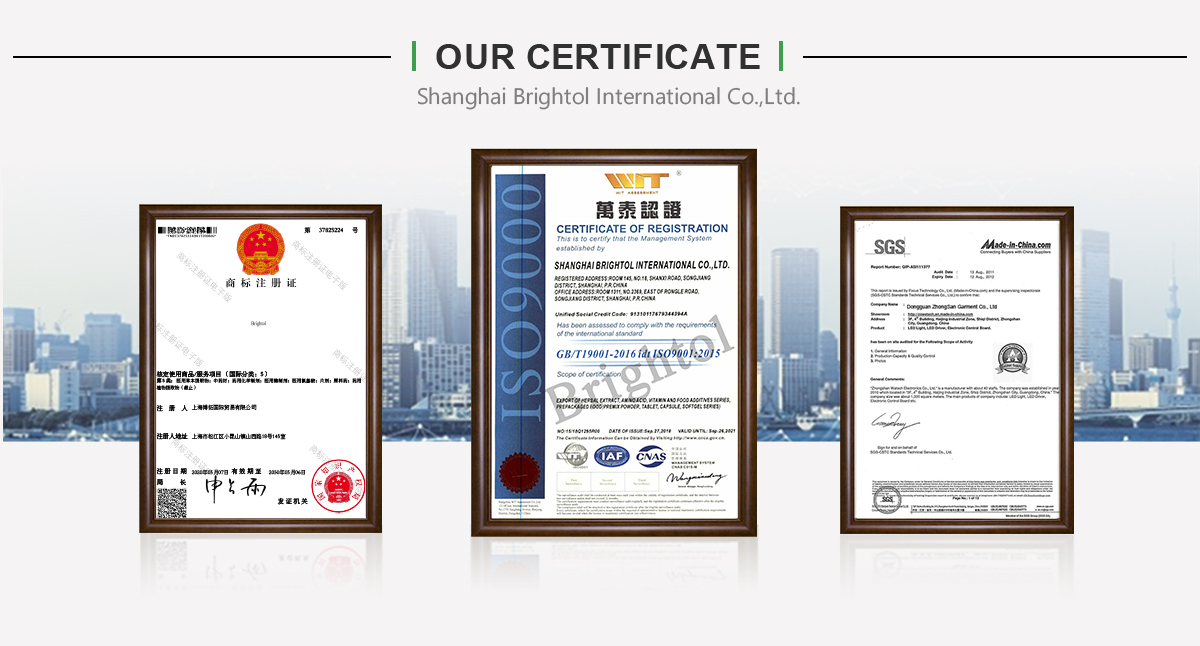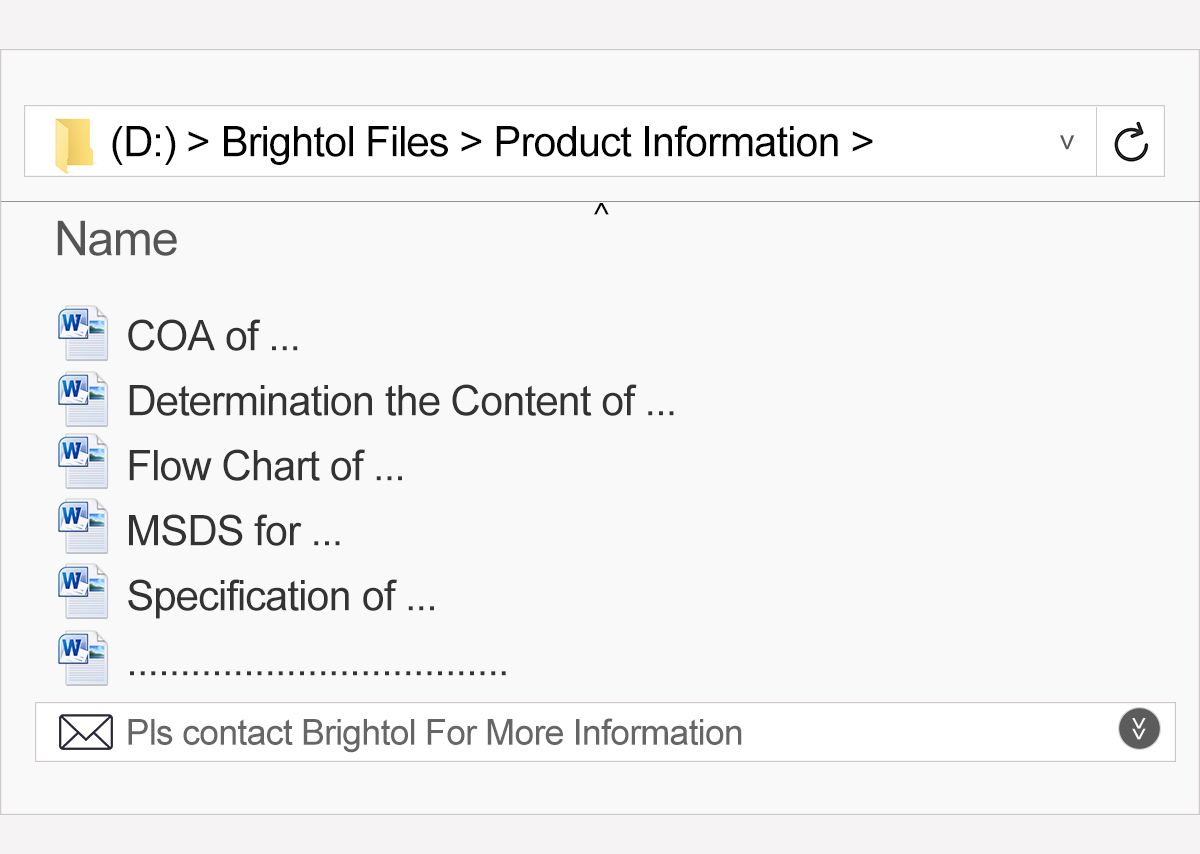

Introduction:
Folic acid is an essential human nutrient, meaning that it can’t be synthesized in the body. The minimum daily requirement of folic acid is 400 micrograms (mcg) for adults and 600 mcg for pregnant women. Folic acid is biologically inactive in pure form and must first be converted to other forms such as dihydrofolic acid and tetrahydrofolic acid before it becomes biologically useful.
Folic acid has the chemical formula C19H19N7O6 and is known by many other names such as vitamin B9, pteroyl-L-glutamate and pteroyl-L-glutamic acid. The term “folate” is also used to refer to the deprotonated ion of folic acid, typically within the context of food additives and health supplements.
Folate is the nutrient found naturally in food, while folic acid is the synthetic version of folate used in supplements.
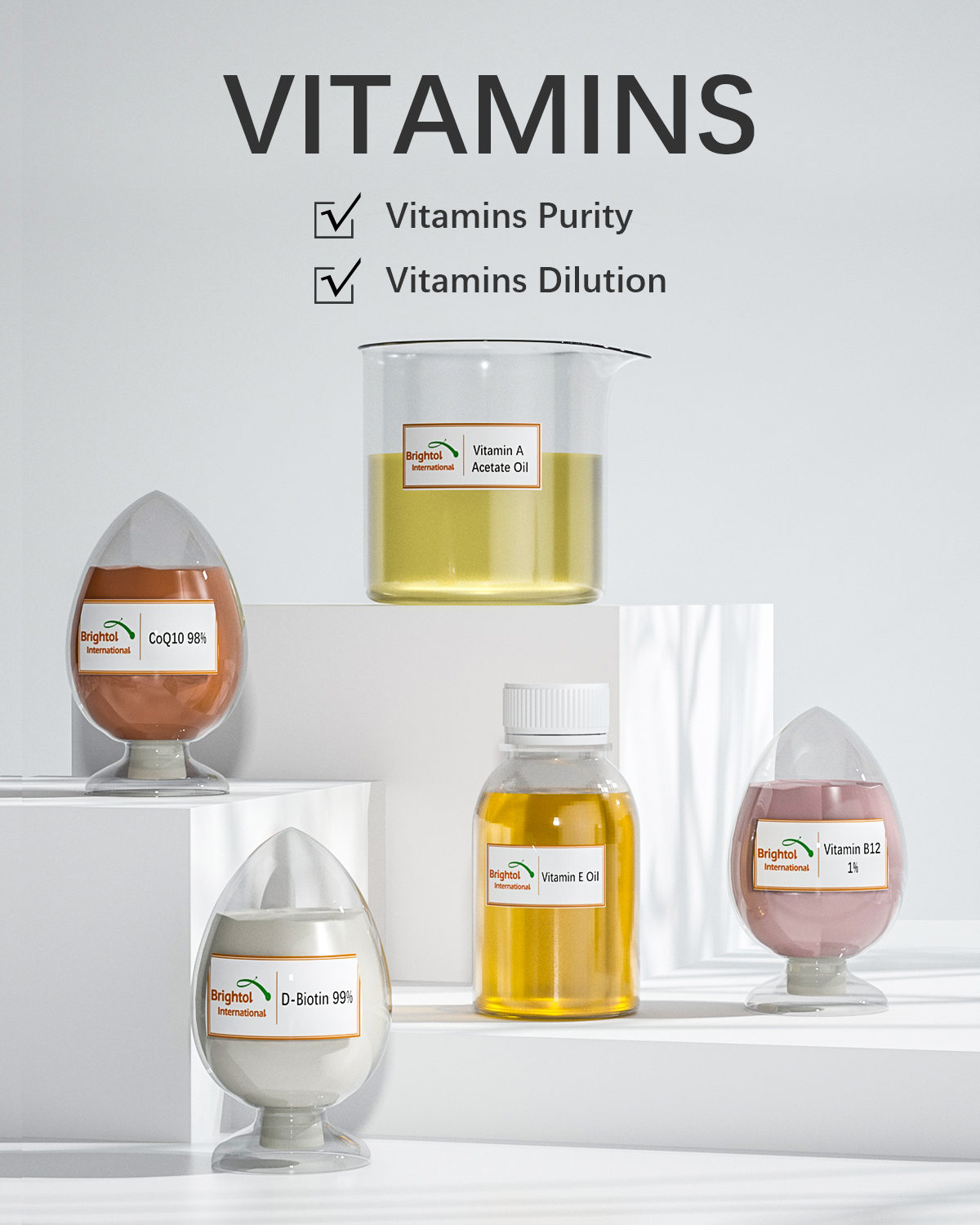
 Vitamin B9 (Folic Acid)
Vitamin B9 (Folic Acid)
Identification
|
Name |
Folic Acid |
|
Molecular Formula |
C19H19N7O6 |
|
Molecular Weight |
441.40 |
|
CAS NO. |
59-30-3 |
|
EINECS |
200-419-0 |
|
Purity(on dry basis) |
96.0%--102.0% |
|
Residue on Ignition |
≤0.2% |
|
Loss on Drying |
5.0%-8.5% |
Introduction:
Folic acid is an essential human nutrient, meaning that it can’t be synthesized in the body. The minimum daily requirement of folic acid is 400 micrograms (mcg) for adults and 600 mcg for pregnant women. Folic acid is biologically inactive in pure form and must first be converted to other forms such as dihydrofolic acid and tetrahydrofolic acid before it becomes biologically useful.
Folic acid has the chemical formula C19H19N7O6 and is known by many other names such as vitamin B9, pteroyl-L-glutamate and pteroyl-L-glutamic acid. The term “folate” is also used to refer to the deprotonated ion of folic acid, typically within the context of food additives and health supplements.
Folate is the nutrient found naturally in food, while folic acid is the synthetic version of folate used in supplements.
Appearance:
A yellow or orange chloroform and ether, but freely soluble in dilute solutions odorless and tasteless, insoluble in water ethanol acetone, cholorform and ether, but freely soluble in dilute solutions of alkali hydroxides or carbonates.
Application:
Folic Acid is a valuable member of the B Vitamin family widely used in feed, food and nutraceutical applications. It is found naturally in many foods, including dark leafy vegetables and a variety of fruits. Many foods including fortified breakfast cereals contain Acid for its health benefits.
Function:
1.Cognitive support
The ability of folic acid to support healthy homocysteine levels may also help to support cognitive function, especially in older people.
2.Heart health support
Folic acid may support heart health by managing homocysteine levels. This benefit helps to maintain a healthy cholesterol profile along with other cardiovascular benefits.
3.Mood support
Folic acid may also help support or manage low moods, especially in combination with other B vitamins such as B6 and B12.
4.Pregnancy support
Folic acid supplements have been linked to healthy early fetal development particularly with respect to neural tube formation. Common neural tube defects fida and cleft palates.
